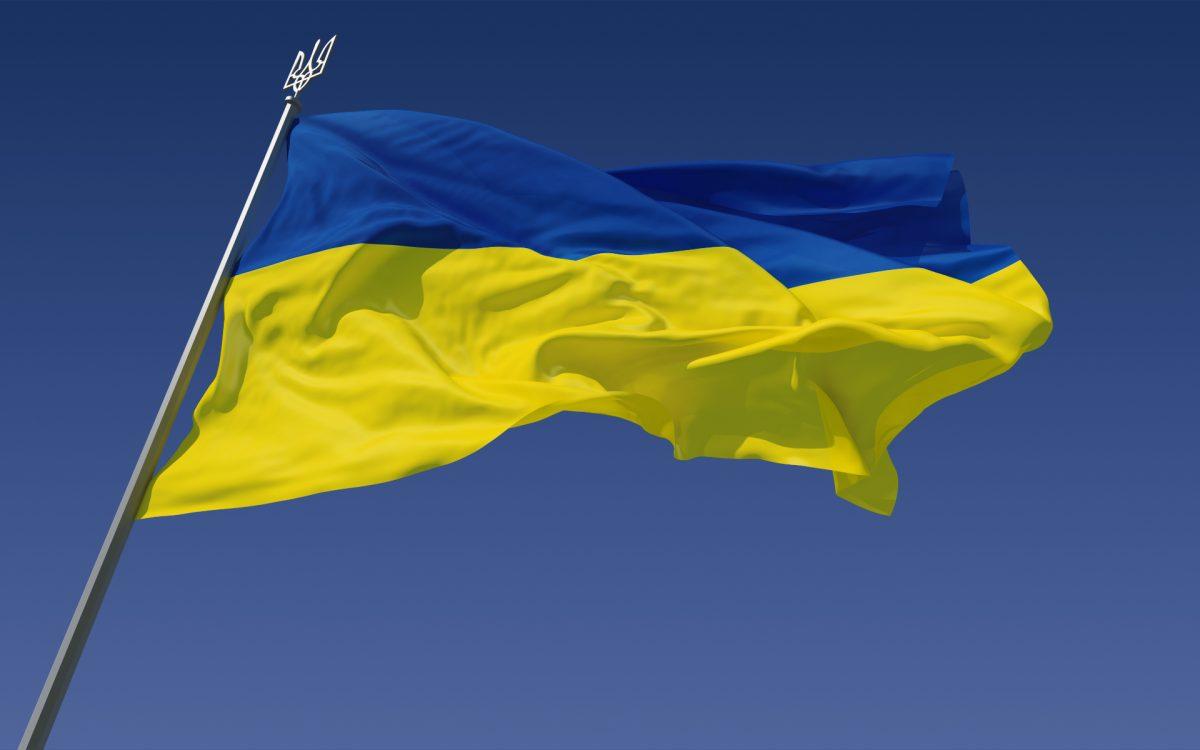The table at the Spring Fling craft fair was conspicuous. Surrounded on all sides by student vendors selling handmade goods, the Committee for Political Engagement (CPE) was there to offer its own services to the Wellesley community: raising awareness for the Russian invasion of Ukraine.
68 days and 4,500 miles have erased much of the initial awareness of the Russian invasion of Ukraine that began on Feb. 24, 2022. As COVID-19 cases surge in the United States and with finals approaching, most students on campus have instead focused their attention on more immediate concerns.
In an Instagram poll put out by The News on April 30, 93% of students believed that at least some awareness for Ukraine had decreased as of February, with 63.5% answering that they believed the difference was significant.
“I don’t know if it’s the campus as a whole, but the media in general has decreased with its coverage of Ukraine. It’s less at the top of what people are consuming media wise,” Alex Hussey ’23 said. “Campus wise, people are going through it right now, so it has kind of gone down [as well].”
Hussey, co-class president of the 2023 class council, originally organized the Spring Fling craft fair as a spiritual successor to a successful winter craft fair held last semester. Concurrently, CPE submitted plans for a similar fair, albeit in the form of a fundraiser, where student vendors would donate 100% of all proceeds towards Ukraine.
“A couple of [CPE] general members, specifically Davis Scholar Alena Lokhmanenko and Arzy Abliadzhyieva ’25, reached out to me about the idea of selling art or crafts to fundraise since Wellesley students are so crafty,” Committee for Political and Legislative Awareness (CPLA) Chair Michelle Lee ’23 said. “They both have ties to the region, so I was inspired by their passion and leadership and wanted to make this idea come true.”
Due to the similarity of the two events, Director of Student Involvement and Leadership Jessica Grady encouraged the two groups to speak with one another. After some talks, CPE and the class council reached a mutual agreement: they would host the spring craft fair together, with vendors donating a self-decided percentage of the money to Ukrainian funds.
“In total we estimate to have raised at least $1,402,” Lee said. “It brought me joy seeing that some vendors, for example, crocheted Ukraine-specific items using blue and yellow. I’m proud that members of the Wellesley community were willing to come together in support [of] an international conflict.”
And while Lee acknowledged that decreasing news coverage of the Russian Invasion in Ukraine has likely resulted in lower awareness among students and Americans in general, she believed that the event did help raise it somewhat.
For Economics Professor Dan Sichel, a former senior economist at the Federal Reserve Board, the war currently remains “still front and center” of his attention due to its far-reaching economic implications throughout the world.
“We’re seeing complete devastation in Ukraine. There’s been complete destruction of all sorts of tools, buildings, equipment that people use for producing goods and services, so many people have left the country as refugees, and so many people are involved in fighting a war rather than doing their jobs,” Sichel said, echoing the predictions that he made in a talk co-hosted with Professor Joe Joyce on March 14 titled “Economic Consequences of the War.” “We’re seeing a complete disruption of the economy, a total devastation at a human, moral — and also economic level.”
Russia and Ukraine are not the only countries to be economically affected by the war: Ukraine is responsible for 10% of the world’s share of wheat, while Russian imports supply as much as 40% of Europe’s natural gas.
“The US has already eliminated imports of Russian energy, and now the EU is slowly eliminating these imports of energy from Russia as well, so the price of energy is a lot higher than what it would have been if none of [the war] in Ukraine had happened,” Sichel said. “This is coming on top of an inflation problem in the US and making the inflation problem even worse,” with the worst case scenario being an incoming recession.
US President Joe Biden signed a request to Congress for more than $33 billion in military and economic aid on April 28, spending that, while Sichel agrees is “quite appropriate,” ”are resources that if not for the war could be used for some other purpose.”
More than 3,153 Ukrainian civilians have died since the beginning of the invasion, according to UN statistics, with an additional estimated 5,000 to 11,000 Ukraine military deaths according to US intelligence agencies. Additionally, the Ukraine economy is estimated to shrink as much as 45% in 2022, according to the World Bank, and as much as a quarter of the population has been displaced.
“The real questions are how the war unfolds from here and — however it unfolds, what it unfolds, whenever the war reaches an end, [how Ukraine rebuilds] really will reflect on how [much] the international community is going to help [in the] process,” Sichel said.






